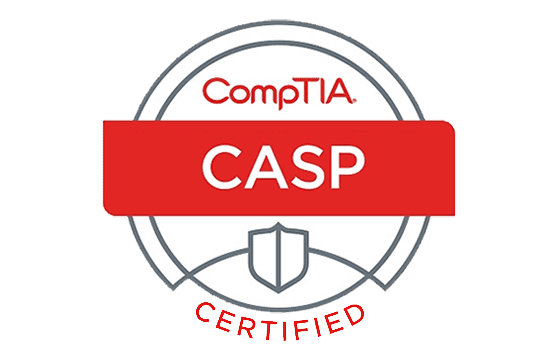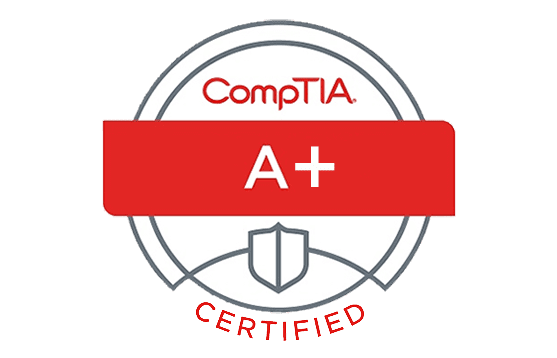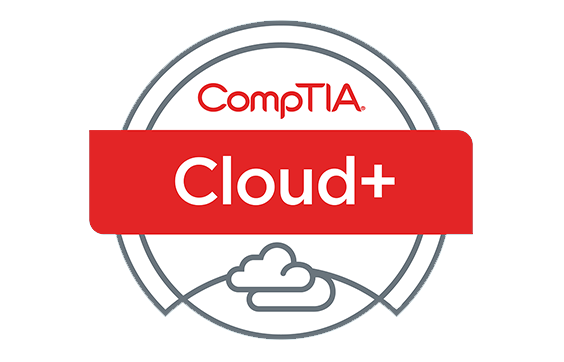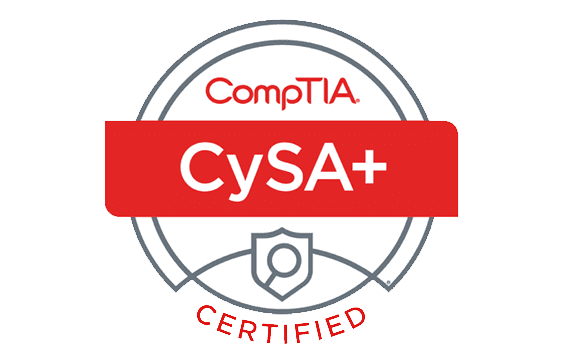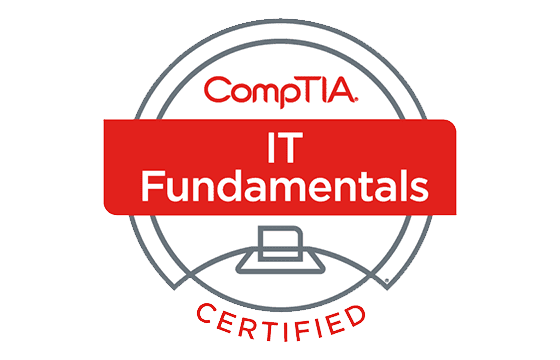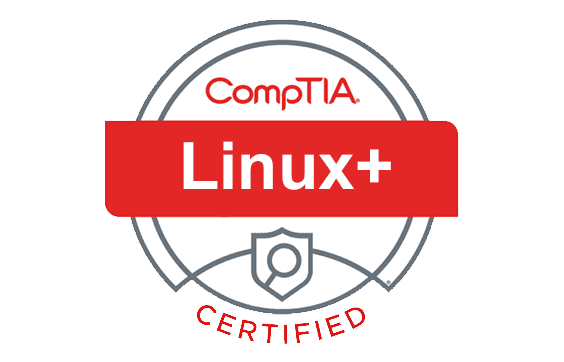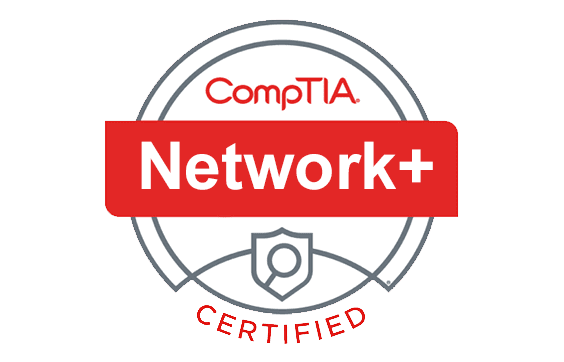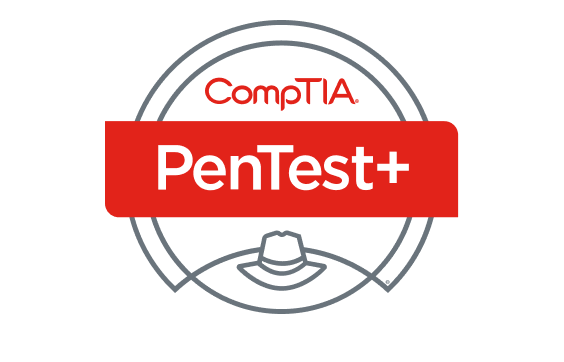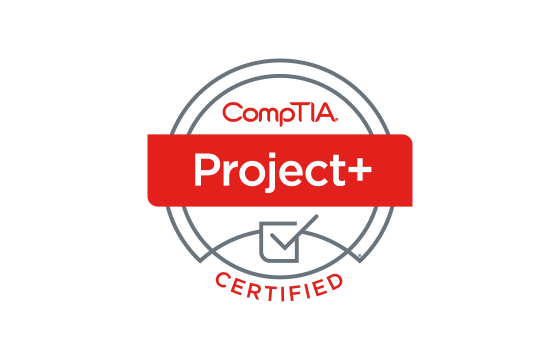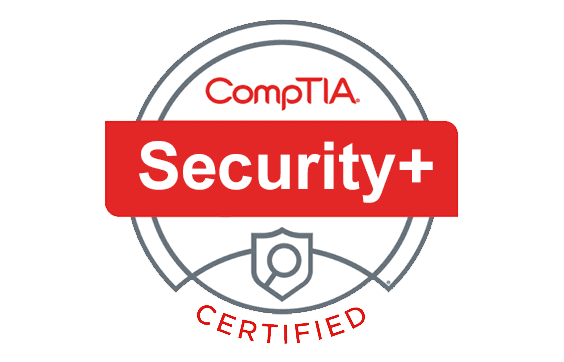Pass Your CompTIA Project+ Certification Easy!
CompTIA Project+ Certification Exams Questions & Answers, Accurate & Verified By IT Experts
Instant Download, Free Fast Updates, 99.6% Pass Rate.
Download Free CompTIA Project+ Practice Test Questions VCE Files
| Exam | Title | Files |
|---|---|---|
Exam PK0-005 |
Title CompTIA Project+ |
Files 1 |
CompTIA Project+ Certification Exam Dumps & Practice Test Questions
Prepare with top-notch CompTIA Project+ certification practice test questions and answers, vce exam dumps, study guide, video training course from ExamCollection. All CompTIA Project+ certification exam dumps & practice test questions and answers are uploaded by users who have passed the exam themselves and formatted them into vce file format.
CompTIA Project+ Complete Roadmap: Exam Preparation, Practical Skills, and Career Benefits
CompTIA Project+ is a globally recognized certification aimed at professionals who are responsible for managing projects, particularly smaller or less complex ones. Unlike some other project management certifications that require extensive experience or knowledge of a specific methodology, Project+ focuses on foundational skills that can be applied across industries and project types. This makes it an ideal choice for professionals looking to formalize their project management knowledge without committing to more advanced certifications like PMP. The certification covers a broad spectrum of project management concepts, from the project life cycle and resource management to risk analysis and effective communication. It equips candidates with the ability to manage projects efficiently, ensuring objectives are met within time, scope, and budget constraints. Achieving this certification demonstrates not only technical proficiency but also a strong understanding of practical project management processes that employers value.
Why CompTIA Project+ Certification Is Valuable
Project management is a skill set that is increasingly in demand across multiple industries. Whether you are working in IT, healthcare, finance, or construction, the ability to manage a project effectively is essential. CompTIA Project+ provides several tangible benefits that make it a valuable credential. First, it enhances career prospects. Certified professionals often experience better job opportunities, promotions, and higher salaries compared to their uncertified peers. Employers see the certification as evidence of the ability to plan, execute, and oversee projects successfully. Second, Project+ validates critical project management skills. It ensures that candidates understand how to define project requirements, manage resources, identify risks, and maintain clear communication with stakeholders. This knowledge is directly applicable to real-world projects, which makes it highly practical. Third, the certification is versatile. Because it is not tied to a specific methodology, such as Agile or Waterfall, it can be applied in various work environments. Professionals can adapt the knowledge gained from Project+ to multiple industries and project types. Finally, it serves as a foundation for advanced certifications. CompTIA Project+ can be a stepping stone toward more specialized or advanced project management qualifications. Professionals who earn this certification can later pursue credentials like PMP, CAPM, or Agile certifications to further enhance their expertise.
Who Should Pursue CompTIA Project+
The certification is suitable for a wide range of professionals. Entry-level project managers who are just beginning to oversee projects can benefit from Project+ by acquiring structured knowledge that can improve project outcomes. IT professionals who manage system upgrades, software implementations, or other technology-focused initiatives will find the certification particularly relevant. Team leaders and supervisors managing small teams or projects can also gain from this credential, as it provides frameworks for organizing tasks, assigning responsibilities, and tracking progress. Additionally, business professionals who work in roles that involve coordinating initiatives or improving operational processes will find the certification useful. Because the certification emphasizes practical skills over theoretical knowledge, it appeals to professionals from diverse backgrounds who need to understand project management concepts and apply them in everyday work scenarios.
Key Domains of CompTIA Project+
The CompTIA Project+ exam tests knowledge across several domains that encompass essential project management skills. Understanding these domains is crucial for exam preparation and practical application.
Project Life Cycle
The project life cycle includes the phases a project goes through from initiation to closure. Candidates must understand how to define project objectives, develop a project plan, execute tasks, monitor progress, and close the project efficiently. Each phase has specific activities and deliverables, and understanding this sequence is fundamental for effective project management.
Roles and Responsibilities
Managing a project involves working with a variety of stakeholders. Understanding the roles and responsibilities of team members, project managers, and stakeholders ensures accountability and smooth coordination. Candidates must learn to define roles clearly, delegate tasks appropriately, and maintain team alignment with project goals.
Communication Management
Effective communication is critical in project management. Project+ emphasizes developing communication plans, managing stakeholder expectations, and maintaining transparent channels for updates and reporting. Strong communication helps prevent misunderstandings, keeps the team informed, and supports timely decision-making.
Tools and Documentation
Using project management tools and maintaining proper documentation is essential for tracking progress and ensuring accountability. Candidates should be familiar with tools for scheduling, budgeting, task assignment, and reporting. Documentation practices include project charters, schedules, status reports, and risk logs, which are critical for both project tracking and knowledge transfer.
Risk Management
Risk management is an essential skill that helps projects succeed despite uncertainties. Candidates must learn to identify potential risks, evaluate their impact, develop mitigation strategies, and respond effectively when issues arise. Proactive risk management minimizes project delays and enhances the likelihood of achieving objectives.
Exam Overview and Structure
The CompTIA Project+ exam is designed to assess both knowledge and practical application. It typically consists of multiple-choice and performance-based questions, allowing candidates to demonstrate understanding through real-world scenarios. The exam usually contains around 95 questions and lasts approximately 90 minutes. The passing score is set at 710 out of 900 points. While there are no mandatory prerequisites, CompTIA recommends that candidates have around 12 months of cumulative project management experience. The exam structure encourages candidates to think critically and apply knowledge rather than simply memorizing concepts. Performance-based questions, in particular, evaluate a candidate’s ability to manage project tasks, communicate with stakeholders, and solve problems efficiently.
Study Strategies for CompTIA Project+ Success
Preparing for the CompTIA Project+ exam requires a combination of theoretical understanding and practical application. Several strategies can help candidates succeed. First, mastering the core domains is essential. Candidates should focus on understanding the project life cycle, roles, communication management, tools, documentation, and risk management. A strong grasp of these areas forms the foundation for effective project management and exam readiness. Second, applying concepts to real-world scenarios improves retention and understanding. Candidates can use past project experiences or hypothetical examples to practice planning, scheduling, and risk management. This approach reinforces knowledge and provides practical insights that are valuable in professional contexts. Third, practice exams are highly beneficial. They familiarize candidates with question formats, time management, and areas that may require additional focus. Consistently taking practice tests and reviewing incorrect answers helps identify gaps in knowledge and boosts confidence. Fourth, consistent review and revision are important. Repeatedly revisiting concepts, processes, and tools strengthens memory and ensures candidates can recall information under exam conditions. Finally, managing time effectively during preparation and on the exam day is crucial. Candidates should allocate sufficient time for each question, avoid spending too long on any single problem, and ensure that all exam content is adequately covered.
Real-World Applications of CompTIA Project+ Skills
The skills gained through CompTIA Project+ are highly applicable in the workplace. For example, project managers can create clear project plans that outline tasks, milestones, and deliverables, improving overall efficiency. Effective communication ensures stakeholders are informed and engaged, reducing the likelihood of misunderstandings. Risk management skills allow professionals to anticipate potential obstacles and implement mitigation strategies proactively. This reduces delays, prevents budget overruns, and enhances project success. Knowledge of tools and documentation practices ensures accurate tracking and reporting, which is critical for accountability and knowledge transfer. Team leaders and coordinators benefit by understanding how to define roles, delegate tasks, and manage team dynamics. This ensures that projects are completed efficiently and that team members remain aligned with project objectives.
Career Opportunities After Certification
Achieving CompTIA Project+ can open doors to multiple career paths. Project coordinators manage schedules, resources, and communication across project teams, ensuring tasks are completed on time. Project managers oversee projects from initiation to closure, monitoring performance and resolving issues as they arise. IT project specialists focus on technology-related projects, managing system implementations, software deployments, and upgrades. Business analysts leverage project management skills to align project objectives with organizational goals and improve operational efficiency. Professionals with Project+ certification are often viewed as capable and versatile, with the skills to manage a variety of projects effectively. This versatility increases their value in the workplace and provides opportunities for career advancement.
Tips for Applying CompTIA Project+ Knowledge on the Job
Certification is only the first step; applying the knowledge effectively in real-world projects is equally important. Professionals should focus on creating detailed project plans that include clear objectives, milestones, and deliverables. Maintaining regular communication with stakeholders ensures transparency and helps manage expectations. Monitoring project progress and tracking key performance indicators allows early detection of potential issues. Using project management tools to organize tasks, resources, and documentation improves efficiency and accountability. Additionally, professionals should embrace continuous learning, refining their skills through experience and seeking feedback from team members and stakeholders. By applying Project+ knowledge proactively, professionals can manage projects more effectively, reduce risks, and deliver successful outcomes consistently.
CompTIA Project+ certification provides a solid foundation for professionals seeking to enhance their project management skills. It emphasizes practical knowledge that is applicable across industries, making it relevant for team leads, coordinators, IT professionals, and business professionals. The certification validates key project management skills, including planning, execution, communication, documentation, and risk management. Preparing for the exam requires understanding core domains, practicing real-world scenarios, and using structured study strategies. By achieving CompTIA Project+, professionals not only improve their career prospects but also gain practical skills that can be applied to manage projects efficiently. This makes the certification a valuable credential for anyone looking to succeed in the field of project management.
Exam Preparation Strategies for CompTIA Project+
Preparing for the CompTIA Project+ exam requires more than just reading a textbook. It demands a structured study approach, consistent practice, and practical application of project management principles. Understanding the exam structure and focusing on the key domains is essential. Candidates should begin by reviewing the five core areas: project life cycle, roles and responsibilities, communication management, tools and documentation, and risk management. Each domain requires a combination of conceptual understanding and practical knowledge.
Developing a clear study schedule helps manage time effectively and ensures that all topics are covered thoroughly. Break study sessions into manageable segments, focusing on one domain at a time. This approach prevents burnout and improves retention. Using multiple study methods, such as videos, practice questions, and case studies, reinforces learning and prepares candidates for different question types.
Regular self-assessment is another critical strategy. Taking practice tests allows candidates to identify weak areas and adapt their study plan accordingly. Reviewing incorrect answers and understanding why they were wrong is essential for consolidating knowledge. Consistent evaluation ensures that candidates progress steadily and enter the exam with confidence.
Creating a Study Plan
A structured study plan is key to passing the CompTIA Project+ exam. Start by estimating the total preparation time available and dividing it across the core domains. For example, allocate more time to areas you are less familiar with, such as risk management or documentation practices. A typical plan may span six to eight weeks, with daily study sessions of one to two hours.
Begin each study session by reviewing key concepts and definitions. Follow this by practicing scenario-based questions that require applying knowledge in real-world contexts. This approach ensures that learning is active rather than passive. Incorporating short reviews at the start of each session reinforces memory and strengthens understanding.
Include periodic full-length practice exams in your schedule. These tests help simulate actual exam conditions, improving time management and identifying areas that require further attention. Adjust your study plan based on practice results, focusing more on weak areas while maintaining proficiency in stronger domains.
Using Multiple Study Resources
Relying on a single resource is often insufficient. A variety of study materials helps provide a well-rounded understanding of project management concepts. Textbooks and official CompTIA guides offer detailed explanations of core topics. Video tutorials provide visual explanations that can clarify complex concepts, making them easier to understand.
Practice tests and question banks are essential for familiarizing candidates with the exam format. They help identify knowledge gaps and improve test-taking strategies. Additionally, real-world project management case studies provide practical insights into how concepts are applied in professional environments. Combining these resources creates a comprehensive learning experience and improves readiness for the exam.
Practical Exercises and Real-Life Application
The CompTIA Project+ exam emphasizes practical knowledge, so applying concepts to real-life scenarios is invaluable. Candidates should take past or ongoing projects as examples to practice project planning, scheduling, and risk assessment. Create mock project plans, including timelines, resources, and milestones, to simulate real project management tasks.
Communication exercises are equally important. Drafting status reports, creating stakeholder communication plans, and practicing team coordination exercises helps candidates understand the importance of clear communication and documentation. These practical exercises not only reinforce knowledge but also improve confidence in applying project management principles on the job.
Simulating problem-solving situations, such as identifying risks and implementing mitigation strategies, prepares candidates for performance-based questions. The goal is to bridge the gap between theoretical knowledge and real-world application, ensuring readiness for all types of exam questions.
Mastering Time Management for the Exam
Time management is a crucial factor in exam success. With approximately 95 questions to answer in 90 minutes, candidates need to pace themselves carefully. Start by reading each question thoroughly and identifying keywords that indicate the focus of the question. Avoid spending too much time on any single question. If a question seems complex, mark it for review and return to it later.
Practice tests under timed conditions are the best way to develop time management skills. They help candidates understand how much time to allocate per question and identify sections that may require faster responses. Managing time effectively reduces exam stress and ensures that all questions are answered.
Tips for Tackling Multiple-Choice Questions
Multiple-choice questions often include distractors, or incorrect answers designed to confuse candidates. Carefully analyze each option and eliminate obviously wrong answers first. Consider the context of the question and apply practical project management knowledge to determine the best answer.
Pay attention to wording. Some questions may include qualifiers such as “most likely” or “primary,” which indicate the focus of the answer. Avoid overthinking or adding assumptions not supported by the question. Practice multiple-choice questions regularly to become familiar with common patterns and question structures.
Approaching Performance-Based Questions
Performance-based questions assess practical application skills and may involve creating schedules, analyzing project scenarios, or resolving issues. Approach these questions systematically: identify the problem, consider potential solutions, and select the option that aligns with best practices in project management.
Use project management frameworks, such as defining objectives, allocating resources, and assessing risks, to guide your responses. Practicing scenario-based exercises before the exam is the most effective way to develop confidence and competence in handling performance-based questions.
Leveraging Study Groups and Mentorship
Study groups and mentorship can greatly enhance exam preparation. Collaborating with peers allows candidates to discuss concepts, clarify doubts, and share practical experiences. Group discussions often provide new perspectives on solving project management problems.
Mentorship from experienced project managers or certified professionals offers guidance on exam strategies and insights into applying knowledge in professional settings. Mentors can provide feedback on practice exercises, suggest additional resources, and help candidates identify areas for improvement.
Managing Exam Anxiety
Exam anxiety is common, but it can be managed with preparation and practice. Develop a consistent study routine to build confidence in your knowledge. Incorporate relaxation techniques, such as deep breathing or short meditation sessions, to reduce stress before and during the exam.
Practice under realistic conditions to simulate the exam environment. Familiarity with the format, timing, and question types reduces anxiety and increases focus. Maintaining a positive mindset and visualizing success can also enhance performance.
Reviewing and Reinforcing Knowledge
Regular review is essential to reinforce learning and ensure knowledge retention. Create summary notes or flashcards for key concepts, definitions, and processes. Review these notes periodically, especially before the exam.
Focus on areas where mistakes occurred in practice tests, and re-study topics that are challenging. Reinforcement through repetition and practical application helps consolidate knowledge, making it easier to recall during the exam.
Utilizing Technology Tools
Several technology tools can support CompTIA Project+ preparation. Project management software, such as scheduling and task management applications, helps candidates practice planning and organizing projects. Online flashcards and quiz apps facilitate quick and efficient review of key concepts.
Simulation software and virtual labs can provide interactive experiences that mirror real project management scenarios. Using these tools enhances understanding, strengthens practical skills, and increases exam readiness.
Tracking Progress and Adapting Strategies
Monitoring progress throughout the study period is crucial. Keep a record of practice test scores, completion of study modules, and areas of improvement. This helps candidates identify trends, recognize strengths, and focus on weak areas.
Adapting study strategies based on progress ensures continuous improvement. If a particular method is not effective, try alternative resources or approaches. Flexibility in study techniques allows candidates to optimize preparation and maximize the chances of passing the exam.
Integrating Knowledge with Work Experience
For professionals already working on projects, integrating exam preparation with work experience is highly beneficial. Apply Project+ principles to current tasks, such as creating schedules, managing risks, or improving communication with stakeholders. This approach reinforces learning and provides practical examples for exam questions.
Documenting real-world applications of project management concepts also helps in performance-based questions. By linking theory with practice, candidates build a deeper understanding and confidence in their skills.
Final Tips for Effective Preparation
Consistency and dedication are key to successful preparation. Set aside dedicated study time, focus on one domain at a time, and gradually integrate practice questions and exercises. Avoid cramming, as this often leads to short-term retention and increased stress.
Maintain a healthy balance between study, work, and personal life to sustain energy and focus. Incorporate breaks, physical activity, and relaxation techniques to maintain productivity. By following structured strategies and applying knowledge consistently, candidates can approach the CompTIA Project+ exam with confidence and achieve success.
Exam preparation for CompTIA Project+ requires a combination of structured study, practical application, and consistent review. Understanding core domains, using multiple study resources, practicing real-world scenarios, and managing time effectively are essential strategies for success.
Leveraging study groups, mentors, and technology tools enhances understanding and readiness. Integrating project management knowledge with work experience provides practical insights that are valuable both for the exam and professional growth. Managing exam anxiety, tracking progress, and adapting strategies ensures continuous improvement and confidence.
By following these comprehensive strategies, candidates can approach the CompTIA Project+ exam fully prepared, with the skills and knowledge needed to pass successfully and apply project management principles effectively in real-world settings.
Deep Dive into Project Life Cycle
Understanding the project life cycle is fundamental for passing CompTIA Project+ and managing projects effectively. The life cycle typically consists of five phases: initiation, planning, execution, monitoring, and closure. Each phase serves a distinct purpose and involves specific activities and deliverables.
The initiation phase defines the project’s purpose, objectives, and feasibility. During this stage, the project manager identifies key stakeholders, assesses available resources, and evaluates risks. A project charter is often created to formally authorize the project and provide a roadmap for subsequent phases. Clear objectives and defined scope are essential to avoid misunderstandings and scope creep later on.
Planning involves creating detailed strategies to achieve project objectives. This includes developing schedules, allocating resources, identifying dependencies, and preparing risk management plans. Effective planning ensures that the project stays on track, aligns with business goals, and addresses potential challenges proactively. Tools such as Gantt charts, work breakdown structures, and project management software are commonly used during this phase.
Execution is where the project plan is put into action. Tasks are assigned, teams collaborate, and deliverables are produced. Project managers oversee progress, facilitate communication, and ensure adherence to timelines and budgets. Leadership skills and team coordination are crucial for maintaining momentum and addressing obstacles as they arise.
Monitoring and controlling focus on tracking project performance, comparing actual progress against the plan, and making necessary adjustments. Key performance indicators (KPIs), progress reports, and status meetings help maintain control over timelines, costs, and quality standards. Risk mitigation strategies are implemented as needed.
Closure involves finalizing all activities, delivering the finished product, obtaining stakeholder approval, and documenting lessons learned. Proper closure ensures that resources are released efficiently and that valuable insights are captured for future projects.
Roles and Responsibilities in Project Management
A clear understanding of roles and responsibilities is essential for efficient project execution. Project+ emphasizes identifying stakeholders, defining roles within the team, and ensuring accountability.
The project manager is responsible for planning, coordinating, and overseeing the project from start to finish. They allocate resources, communicate with stakeholders, and resolve conflicts. Team members are responsible for completing assigned tasks according to the project plan. Each member’s responsibilities should be clearly defined to prevent duplication of effort or gaps in execution.
Stakeholders, including clients, executives, and other departments, influence project decisions and outcomes. Managing stakeholder expectations and maintaining open communication channels is critical for project success. Roles such as sponsors, business analysts, and subject matter experts provide guidance, ensure alignment with objectives, and contribute specialized knowledge.
Effective delegation, collaboration, and accountability among all roles ensure that projects progress smoothly and meet established goals.
Communication Management and Stakeholder Engagement
Communication management is a cornerstone of successful project management. Project+ emphasizes creating and executing communication plans that keep stakeholders informed and engaged.
A communication plan outlines what information will be shared, the frequency of updates, communication channels, and responsible parties. Regular status meetings, progress reports, and stakeholder briefings help maintain transparency and prevent misunderstandings.
Effective communication also involves active listening, adapting messages to the audience, and addressing conflicts constructively. Managing expectations and ensuring that all parties have a clear understanding of project objectives reduces risks associated with miscommunication.
Stakeholder engagement extends beyond communication. It includes involving stakeholders in decision-making, obtaining feedback, and ensuring their requirements are incorporated into the project. Engaged stakeholders are more likely to support the project, facilitate resources, and approve deliverables on time.
Project Management Tools and Their Applications
Project management tools are critical for planning, organizing, and tracking projects. CompTIA Project+ highlights the importance of using tools effectively to improve efficiency and accountability.
Scheduling tools, such as Gantt charts, help visualize timelines, dependencies, and milestones. Task management applications allow managers to assign tasks, monitor progress, and identify bottlenecks. Collaboration platforms facilitate team communication, document sharing, and real-time updates.
Budgeting and resource management tools assist in tracking costs, allocating personnel, and optimizing resource utilization. Risk management software enables identification, assessment, and mitigation of potential project risks. Using these tools effectively reduces errors, improves communication, and supports decision-making throughout the project life cycle.
Importance of Documentation
Documentation is essential for project tracking, accountability, and knowledge transfer. Project+ emphasizes maintaining accurate and complete records throughout the project.
Key documents include project charters, work breakdown structures, schedules, risk registers, status reports, and closure reports. Proper documentation ensures that stakeholders have access to accurate information, team members understand their responsibilities, and project history is recorded for future reference.
Lessons learned documents provide valuable insights for future projects. They help identify what went well, what challenges were encountered, and which strategies were effective. Consistently documenting processes and decisions improves organizational learning and contributes to continuous improvement.
Risk Management and Problem-Solving Techniques
Risk management is a proactive approach to identifying and mitigating potential obstacles. CompTIA Project+ emphasizes understanding risks, evaluating their impact, and developing strategies to address them.
Risk identification involves listing all potential threats to the project, such as budget overruns, resource shortages, or technical challenges. Risk assessment evaluates the likelihood and impact of each risk, prioritizing them for action. Mitigation plans outline strategies to reduce the probability or severity of risks, while contingency plans provide alternative solutions if risks materialize.
Problem-solving techniques are also critical. Project managers must analyze issues, identify root causes, and implement corrective actions. Tools such as cause-and-effect diagrams, brainstorming sessions, and decision matrices support systematic problem-solving. Effective risk management and problem-solving increase the likelihood of project success and minimize negative impacts on schedule, cost, and quality.
Real-World Examples of Project+ Skills
Applying Project+ principles in real-world scenarios reinforces learning and demonstrates practical competence. For example, a marketing team launching a new product can use project life cycle principles to plan campaigns, allocate responsibilities, and track milestones. Risk management strategies can address potential delays in production or distribution.
In IT projects, a software upgrade requires careful scheduling, resource allocation, and communication with stakeholders. Using project management tools helps coordinate teams, monitor progress, and document changes. Lessons learned from previous upgrades can inform planning and prevent repeated mistakes.
Even in non-technical projects, such as event planning or process improvement initiatives, applying Project+ skills improves efficiency, accountability, and outcomes. Clear roles, effective communication, documentation, and risk management contribute to smoother execution and successful project delivery.
Integrating Knowledge Across Domains
Success in project management requires integrating knowledge from multiple domains. Planning, execution, communication, risk management, and documentation are interconnected and must be applied cohesively.
For example, identifying risks during planning affects the allocation of resources and task scheduling. Effective communication ensures that team members are aware of risks and mitigation strategies. Documentation provides a record of decisions and actions, supporting accountability and continuous improvement.
By understanding the relationships between domains and applying them consistently, professionals can manage projects more effectively and respond proactively to challenges.
Tools, Documentation, and Real-World Practice
In addition to studying theory, hands-on practice with tools and documentation enhances competence. Candidates should experiment with scheduling software, task management platforms, and collaboration tools. Creating mock project plans, risk registers, and communication strategies provides practical experience that mirrors exam scenarios.
Reviewing completed documentation, analyzing outcomes, and adjusting strategies based on lessons learned reinforces knowledge. Real-world practice bridges the gap between theoretical understanding and practical application, preparing candidates for both the exam and professional project management responsibilities.
Enhancing Skills Through Continuous Learning
Project management is an evolving field, and continuous learning is essential for maintaining relevance. Professionals should stay updated on industry trends, emerging methodologies, and new project management tools. Attending workshops, webinars, and training programs helps refine skills and introduces new approaches to problem-solving and team management.
Networking with other project managers and participating in professional communities provides opportunities to exchange ideas, discuss challenges, and learn from others’ experiences. Continuous learning ensures that project managers remain effective, adaptable, and prepared for increasingly complex projects.
CompTIA Project+ equips professionals with the skills and knowledge required to manage projects effectively across industries. Understanding the project life cycle, defining roles and responsibilities, managing communication, using tools, maintaining documentation, and implementing risk management strategies are all critical components.
Practical application of these concepts through real-world scenarios and exercises enhances competence and confidence. Integrating knowledge across domains ensures cohesive project management and prepares candidates for professional challenges. Continuous learning, coupled with hands-on practice, solidifies expertise and contributes to career growth.
By mastering the core domains, leveraging project management tools, and applying knowledge in real-world situations, professionals can achieve success both in the CompTIA Project+ exam and in managing projects effectively in their careers.
Understanding Exam Structure and Expectations
The CompTIA Project+ exam is designed to test both theoretical knowledge and practical application. It consists of multiple-choice and performance-based questions that cover five major domains: project life cycle, roles and responsibilities, communication management, tools and documentation, and risk management. Understanding the structure of the exam is essential to plan preparation effectively.
Performance-based questions often simulate real-world scenarios requiring candidates to demonstrate practical skills, such as creating project schedules, allocating resources, or responding to risks. Multiple-choice questions assess conceptual knowledge and problem-solving ability. Familiarity with both question types and understanding their purpose will guide a more strategic study approach.
Identifying Common Challenges
Candidates frequently encounter several obstacles when preparing for Project+. One common challenge is balancing theory with practical application. Memorizing concepts without understanding how to implement them in real projects can lead to errors in performance-based questions.
Another difficulty lies in managing the breadth of content. Project+ covers multiple domains that span planning, execution, communication, and monitoring. Candidates must ensure comprehensive knowledge across all areas while avoiding overemphasis on any single domain.
Time management during the exam is also a notable challenge. With roughly 95 questions to answer in 90 minutes, pacing is critical. Mismanaging time can result in unanswered questions or rushed answers, impacting scores. Lastly, exam anxiety can affect even well-prepared candidates, reducing focus and efficiency under pressure.
Strategic Study Approaches
A targeted study plan enhances retention and performance. Begin by reviewing exam objectives and mapping out your strengths and weaknesses in each domain. Allocate more time to areas where knowledge is limited while maintaining proficiency in familiar subjects.
Divide study sessions into focused blocks, with each block concentrating on one domain. Use a combination of reading, video tutorials, and practice exercises to reinforce learning. Repetition and active recall techniques help strengthen memory and understanding.
Integrating short quizzes and scenario-based exercises within your study routine ensures that knowledge is applied, not just memorized. Reviewing mistakes in these exercises highlights areas requiring further attention.
Leveraging Practice Exams
Practice exams are essential for both knowledge reinforcement and familiarity with exam format. Timed practice tests simulate real conditions, helping candidates manage pacing and reduce anxiety. Performance-based simulations allow candidates to practice applying concepts in realistic scenarios.
After each practice session, carefully review incorrect answers to identify knowledge gaps. Understanding why an answer is wrong is as important as knowing why the correct answer is right. Consistent practice helps internalize concepts and improves accuracy under exam conditions.
Handling Performance-Based Questions
Performance-based questions assess real-world problem-solving skills. Candidates must approach these methodically. Start by carefully analyzing the scenario, identifying objectives, constraints, and key stakeholders. Consider dependencies, risks, and resource requirements.
Use project management frameworks to guide decisions. For example, in scheduling tasks, ensure dependencies and durations are considered. In risk scenarios, evaluate potential impacts and develop mitigation strategies. Practicing these exercises beforehand builds confidence and improves efficiency in responding to such questions.
Time Management During the Exam
Effective pacing is crucial to completing all questions within the allotted time. Candidates should allocate roughly one minute per multiple-choice question while reserving additional time for performance-based items. Start by answering questions you are confident about to secure points quickly.
Mark challenging questions and return to them later. Avoid spending excessive time on any single item. Timed practice tests are helpful in developing a realistic sense of how to allocate time, manage pressure, and maintain focus throughout the exam.
Advanced Study Techniques
Advanced preparation strategies can improve comprehension and retention. Scenario-based learning, for instance, involves analyzing detailed project situations and determining appropriate actions. This develops critical thinking and practical application skills.
Visualization tools such as mind maps help organize information and illustrate connections between concepts, such as linking risk management strategies to project planning steps. Peer discussions and mentoring offer opportunities to explore different approaches and learn from real-world experiences. Combining these techniques ensures a well-rounded understanding.
Utilizing Technology and Resources
Technology enhances preparation and practical understanding. Project management software allows candidates to simulate scheduling, resource allocation, and risk management exercises. Digital flashcards, mobile apps, and online quizzes facilitate active recall of key concepts.
Video tutorials and webinars provide visual explanations that clarify complex topics. Combining traditional study methods with digital resources ensures comprehensive coverage and improves engagement.
Managing Exam Anxiety
Mental preparedness is as important as knowledge. Consistent study habits, adequate rest, and a healthy routine help reduce stress. Relaxation techniques such as deep breathing, meditation, or short breaks during study sessions improve focus and retention.
Visualization strategies, such as imagining successful completion of the exam, can build confidence. Being mentally prepared allows candidates to read questions carefully, think critically, and respond accurately under timed conditions.
Practical Exercises for Real-World Application
Applying Project+ concepts to real or simulated projects bridges theory and practice. Candidates should draft project plans, create schedules, allocate resources, and simulate risk management scenarios. Preparing status reports, stakeholder communications, and project closure documents reinforces practical skills.
Analyzing past projects or case studies offers insight into effective practices, common challenges, and lessons learned. Regular engagement in practical exercises ensures that candidates can handle both exam scenarios and workplace responsibilities confidently.
Review and Reinforcement
Reinforcing knowledge through regular review ensures retention. Summarize key concepts in notes or flashcards for easy reference. Revisit weak areas identified in practice exams to strengthen understanding.
Active recall, repetition, and scenario application help consolidate learning. Consistent review reduces the risk of forgetting critical concepts and improves performance on both multiple-choice and performance-based questions.
Integrating Professional Experience
Candidates with professional project management experience should relate exam content to their work. Applying theoretical concepts to actual projects provides context and strengthens practical understanding. Documenting lessons learned and real-world applications also supports responses to scenario-based questions.
Integration of professional experience with exam preparation not only enhances understanding but also prepares candidates to implement Project+ principles effectively in their careers.
Exam Day Preparation
Preparation on the day of the exam is critical. Ensure adequate rest, plan your schedule to arrive early at the testing center or set up your remote testing environment in advance, and bring required identification.
During the exam, read questions carefully, manage your time wisely, and tackle easier questions first. Use systematic approaches for performance-based items and review marked questions before submission. Staying calm, focused, and confident contributes significantly to success.
Maximizing Success Beyond the Exam
The CompTIA Project+ certification is more than an exam—it is a tool for professional growth. Applying Project+ principles to real-world projects demonstrates competence and enhances credibility. Professionals can leverage the certification to improve project planning, execution, and communication within their organizations.
Continuous learning, exposure to diverse project types, and integration of advanced project management methodologies help maximize the value of certification. Networking with other certified professionals and participating in professional communities can provide additional insights and career opportunities.
The fourth step in mastering CompTIA Project+ involves strategic preparation, understanding challenges, and developing exam skills. Addressing common pitfalls, mastering performance-based questions, managing time effectively, and employing advanced study techniques are crucial for exam success.
Practical exercises, technology tools, scenario-based learning, and professional experience strengthen knowledge and application skills. Managing stress, maintaining focus, and following an exam-day routine ensure optimal performance.
By implementing these strategies, candidates can approach the CompTIA Project+ exam with confidence, demonstrate proficiency in project management principles, and leverage their certification to achieve career advancement and professional growth.
Career Opportunities with CompTIA Project+
CompTIA Project+ certification opens doors to a variety of career paths across multiple industries. Project management skills are universally valued, making this credential applicable in IT, healthcare, finance, construction, marketing, and more. Professionals with Project+ are often considered capable of overseeing projects, coordinating teams, and managing resources effectively.
Roles such as project coordinator, project manager, IT project specialist, and business analyst are common career opportunities for certified individuals. Project coordinators focus on tracking schedules, organizing tasks, and maintaining communication between team members. Project managers take on higher responsibility, overseeing the entire project life cycle, allocating resources, and ensuring deliverables meet quality standards. IT project specialists manage technology-related initiatives, including software deployments, system upgrades, and cybersecurity projects. Business analysts leverage project management skills to align projects with organizational goals and improve operational efficiency.
Enhancing Career Growth
Project+ certification can significantly enhance career prospects. Employers value candidates who can demonstrate practical project management knowledge, effective communication skills, and the ability to handle challenges proactively. Certified professionals often experience faster promotions, increased responsibilities, and higher salaries compared to their uncertified peers.
The certification also provides credibility. It signals to employers that the candidate possesses validated skills and is committed to professional development. This credibility can be particularly valuable for professionals transitioning into project management from other roles or industries. Additionally, Project+ serves as a foundation for advanced certifications like PMP, CAPM, or Agile credentials, enabling long-term career growth and specialization.
Real-World Applications of Project+ Skills
The practical knowledge gained through Project+ is applicable in everyday professional tasks. For example, creating a project plan with defined objectives, milestones, and deadlines ensures efficient project execution. Assigning roles and responsibilities clearly improves team collaboration and accountability.
Risk management skills enable professionals to anticipate obstacles, evaluate their impact, and implement mitigation strategies. This proactive approach reduces delays, prevents budget overruns, and ensures project success. Effective communication keeps stakeholders informed and engaged, minimizing misunderstandings and fostering alignment with project goals.
Documentation skills are equally essential. Maintaining accurate project records, status reports, and lessons learned improves transparency, accountability, and knowledge transfer. Whether managing small-scale projects or larger initiatives, these skills enhance performance and contribute to successful outcomes.
Leveraging Certification for Professional Advancement
Certified professionals can leverage Project+ to differentiate themselves in competitive job markets. Highlighting the certification on resumes, LinkedIn profiles, and during interviews demonstrates both technical proficiency and commitment to professional growth.
In organizations, certified individuals often gain trust from leadership and stakeholders, making them suitable candidates for leadership roles, cross-functional projects, and strategic initiatives. The certification also provides a framework for improving processes, implementing best practices, and delivering measurable results, which can lead to recognition, raises, and expanded career opportunities.
Networking and Professional Communities
Engaging with professional networks and communities enhances the value of Project+ certification. Networking with other project management professionals provides opportunities to share experiences, discuss challenges, and learn about emerging trends and methodologies.
Professional communities often offer resources such as webinars, workshops, and mentoring programs, which support continuous learning and career growth. Participating in these networks allows certified professionals to gain insights from peers, expand their professional connections, and access opportunities that may not be advertised publicly.
Continuous Learning and Skill Development
Project management is an evolving field, and continuous learning is crucial for maintaining relevance. CompTIA Project+ certification provides a solid foundation, but professionals should build on this by exploring advanced methodologies, tools, and industry-specific practices.
Pursuing additional certifications in Agile, Scrum, Lean, or PMP enhances knowledge and opens doors to higher-level responsibilities. Attending training programs, seminars, and workshops keeps skills current and ensures familiarity with emerging tools and trends. Continuous learning demonstrates commitment to professional excellence and positions individuals for long-term success.
Applying Project+ in Various Industries
Project+ skills are versatile and can be applied across a range of industries. In IT, professionals can manage software deployments, infrastructure upgrades, and cybersecurity initiatives. Healthcare project managers oversee process improvements, patient care programs, or technology implementations that enhance service delivery.
In construction and engineering, Project+ skills help coordinate timelines, allocate resources, manage subcontractors, and ensure compliance with regulations. Marketing and business development projects benefit from structured planning, risk management, and stakeholder engagement. The flexibility of Project+ ensures that certified professionals can apply their skills in multiple contexts, increasing career mobility and opportunities.
Long-Term Benefits of Certification
Earning CompTIA Project+ provides both immediate and long-term benefits. In the short term, professionals gain validated knowledge and practical skills, enabling them to manage projects more effectively. This leads to improved performance, recognition, and career advancement.
Long-term benefits include enhanced career mobility, the ability to pursue advanced certifications, and a strong foundation for leadership roles. Certified professionals are often better equipped to adapt to changing project requirements, implement best practices, and mentor team members, contributing to sustained success in their careers.
Building Leadership Skills
Project+ certification also develops key leadership competencies. Managing projects requires the ability to coordinate teams, communicate effectively, and make informed decisions. Professionals who apply these skills consistently build credibility and influence within their organizations.
Leadership skills gained through Project+ are transferable across roles and industries. They enable professionals to manage larger projects, lead cross-functional teams, and contribute to strategic planning. Over time, these skills position individuals for senior management or executive roles, expanding career horizons.
Maximizing ROI from Certification
To maximize the return on investment from Project+, professionals should integrate certification knowledge into their daily work. Apply structured planning, monitoring, and documentation practices in real projects. Use risk management strategies proactively, and communicate effectively with stakeholders.
Continuously track outcomes and improvements resulting from certified practices. Demonstrating measurable results, such as improved project delivery times, cost savings, or enhanced team efficiency, strengthens professional credibility and increases value to employers. Combining practical application with continuous learning ensures long-term benefits from certification.
Mentorship and Knowledge Sharing
Mentoring colleagues or sharing knowledge within an organization enhances the impact of Project+ certification. Teaching others reinforces your understanding and contributes to a culture of continuous improvement.
Mentorship also builds professional relationships and leadership experience. Sharing best practices, guiding teams through complex projects, and providing feedback strengthens organizational capability while demonstrating the certified professional’s expertise.
Strategic Career Planning
CompTIA Project+ can be part of a larger career strategy. Professionals should set goals for skill development, role progression, and additional certifications. Identify opportunities for applying project management principles in current roles and seek assignments that expand experience and responsibilities.
Strategic career planning ensures that certification translates into tangible career growth. By aligning professional goals with skills gained from Project+, individuals can advance more quickly, gain recognition, and pursue specialized or leadership roles in project management.
Enhancing Organizational Impact
Certified professionals contribute to their organizations beyond individual projects. Applying Project+ principles consistently improves efficiency, communication, and risk management across teams. This leads to higher project success rates, better resource utilization, and increased stakeholder satisfaction.
Organizations benefit from employees who can implement structured project management practices, standardize processes, and mentor colleagues. Project+ certification thus creates a ripple effect, enhancing overall organizational performance and culture.
Conclusion
CompTIA Project+ certification is a valuable credential that enhances career opportunities, practical skills, and professional credibility. It prepares candidates to manage projects effectively, apply structured methodologies, and communicate efficiently with stakeholders.
The certification opens doors to multiple career paths, including project coordinator, project manager, IT project specialist, and business analyst roles. It supports career growth, leadership development, and long-term professional advancement. By applying skills to real-world projects, leveraging professional networks, and committing to continuous learning, certified professionals maximize the value of Project+.
Ultimately, Project+ certification equips individuals with the tools, knowledge, and confidence to succeed in project management across industries, creating lasting career impact and opportunities for continued growth and development.
ExamCollection provides the complete prep materials in vce files format which include CompTIA Project+ certification exam dumps, practice test questions and answers, video training course and study guide which help the exam candidates to pass the exams quickly. Fast updates to CompTIA Project+ certification exam dumps, practice test questions and accurate answers vce verified by industry experts are taken from the latest pool of questions.
CompTIA CompTIA Project+ Video Courses


Top CompTIA Certification Exams
Site Search:




